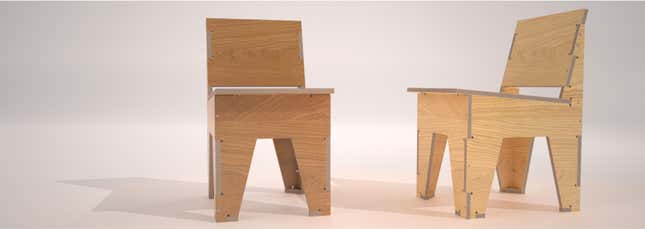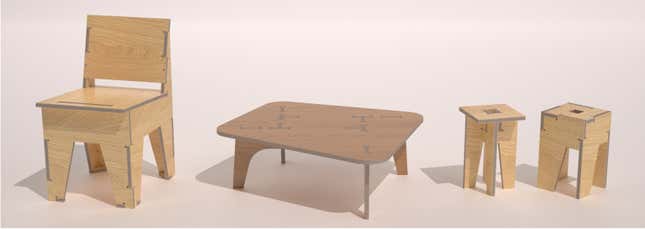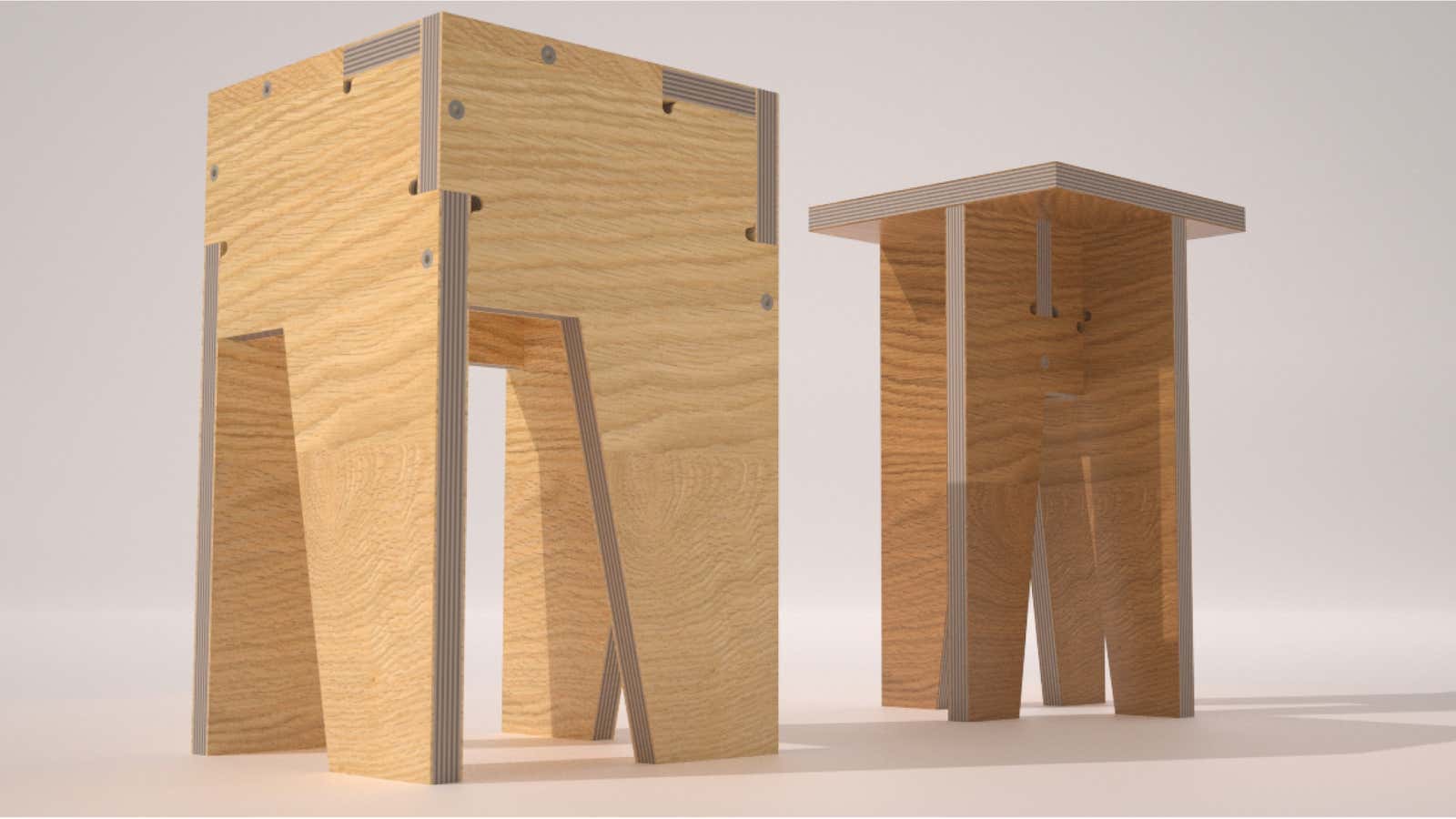It’s not often that a company gets its start by giving away 100% of its intellectual property and encouraging potential customers to manufacture the company’s products on their own. But that’s exactly how AtFAB, a tiny, two-person furniture startup based in Lexington, Kentucky, first germinated.
Now AtFAB is one of the pioneers of a new model of making things known as “distributed manufacturing.” Imagine, for example, the usual way that a chair from IKEA arrives in your home. First the materials are sourced from all over the world, then shipped to factories for refining and (partial) assembly, and finally they’re distributed to retail outlets. All that shipping has a huge cost in energy and, ultimately, dollars.

By contrast, in AtFAB’s version of distributed manufacturing, plans for their chairs, tables and stools exist solely as “cut files” which can be sent to a CNC router, a machine that can cut any shape out of almost any material, in three dimensions. (CNC routers have been around at least since the 1960s, and are sort of the manufacturing world’s subtractive, more-useful predecessor of 3D printing.)
Small manufacturing facilities with CNC routers have proliferated across the world—they’re standard equipment in most machine shops, for example. So anyone with AtFAB’s digitized designs can get the parts of AtFAB’s furniture cut at a nearby facility, from almost any material that’s strong enough, from plywood and plastic to aluminum and steel.
Now AtFAB is taking its give-away-everything model and bolting on what most companies would have started with in the first place: A business that involves actually selling its furniture.
Giving away the plans, but selling the product
“It’s like how you give away a recipe, but people still go to your restaurant,” says Anne Filson, co-founder of AtFAB. “We feel the [do-it-yourself person] is always going to want to be curious and make our furniture themselves, while a consumer may have the aspiration to own our furniture, but may not have the luxury of the time or resources to do it.”
Selling furniture rather than just giving away the plans won’t end AtFAB’s commitment to distributed manufacturing, says Filson. Once their business gets to a sufficient scale, they’ll still be able to have their furniture manufactured at facilities that are as close as possible to the end consumer, from readily available materials. One way this might work is through a licensing model: Manufacturers that are vetted by AtFAB and agree to maintain a certain standard of quality could purchase the right to cut the parts for AtFAB furniture and sell it directly, as flat-pack kits that consumers can assemble themselves.
And what about the style and usability of furniture that comes as a snap-together kit? AtFAB’s designs are compelling enough that the company already completed a commission to outfit the Brooklyn offices of MakerBot (which recently announced it was being acquired by Stratasys for more than $400 million) with custom furniture.

Turning ‘Makers’ into a free, distributed R&D operation
Because AtFAB released its designs a year before it decided to sell the results as a finished product, the company has had plenty of time to build up enthusiasm among hobbyists—so-called Makers—who appreciate AtFAB’s approach to giving away intellectual property. “One thing we realized is that there is this community of makers who are all over the world have been making our designs,” says Filson. “Which means we have been essentially crowdsourcing our R&D, and that has been a lot of fun, but also super interesting.”
Early on, people who downloaded AtFAB’s designs discovered that they couldn’t always be reliably produced on different models of CNC routers, which led the company to modify the designs and come up with new ways to help remote manufacturers calibrate their machines to produce consistent results. Hobbyists have also provided continuous feedback to AtFAB about the functionality of the designs themselves, offering improvements and suggestions. “I’d so much rather do it this way than make something in a top-down way and market test it with a focus group or something,” says Filson.
Crowdsourcing AtFAB’s launch
AtFAB has significant intangible resources, like its community and designs, but not much in the way of funding. It’s a side project of Filson and Gary Rohrbacher, architects and professors at the University of Kentucky. So naturally, they’re seeking their first round of funding on Kickstarter. Stools are $99 and chairs $400, but if you’re feeling adventurous, you can always download the plans for free, purchase the raw materials yourself and head to your nearest light industrial zone, which is sure to be full of CNC routers.
